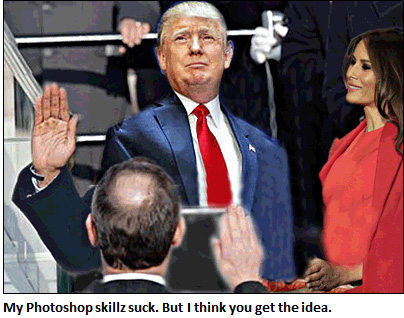 Jay Nordlinger is confused at the idea that if he doesn’t vote for Donald Trump, he’s effectively voting for Hillary Clinton:
Jay Nordlinger is confused at the idea that if he doesn’t vote for Donald Trump, he’s effectively voting for Hillary Clinton:
People tell me that, if I don’t vote for either Trump or Hillary, I’m voting for Hillary. My first response is, “So?” My second response is, “What are you smoking?” If it’s true that, if I don’t vote for either Trump or Hillary, I’m voting for Hillary, why isn’t it equally true that I’m voting for Trump? You see what I mean? How come Trump doesn’t get my non-vote? Why does just Hillary get it?
Am I missing something?
Perhaps it’s this: Perhaps people think that Trump has some kind of claim on my vote, because I’m a conservative (and, until earlier this week, I was a Republican)….
Let’s stop right here. I think I see the problem. If not-Trump voters are distributed randomly, the effect would indeed be small. That’s what happened with Ross Perot in 1992. But if millions of people who otherwise would have voted for the Republican nominee are defecting, then the effect is large and decidedly non-random. You really are effectively voting for Hillary since there’s no plausible third-party candidate to take votes away from her.
And it doesn’t even take millions. Ralph Nader effectively elected George W. Bush in 2000 with only a few thousand votes in Florida. It wasn’t his intent, and the odds against it were high, but nonetheless that’s how it worked out.
This is all predicated on the fact that Nordlinger almost certainly votes for Republicans most of the time and for Republican presidential candidates all the time. I’m pretty sure that’s true. And if millions of formerly loyal Republicans stay away from the polls or vote for Gary Johnson or just leave their ballots blank, then Hillary is a shoo-in. I kinda hate to be the one making this case, but there’s really no way around this.


















